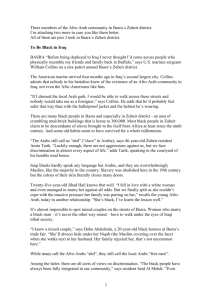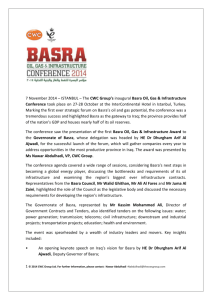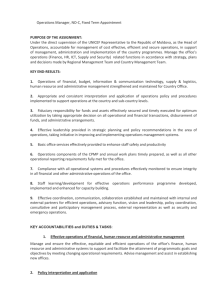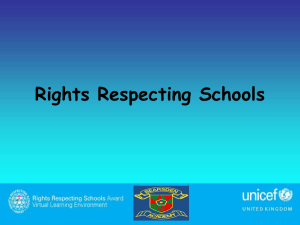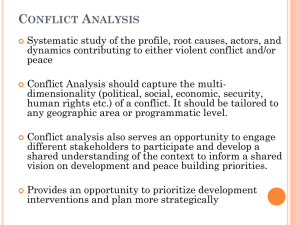UNICEF, European Union and Government of Iraq Start 17M Euro
advertisement
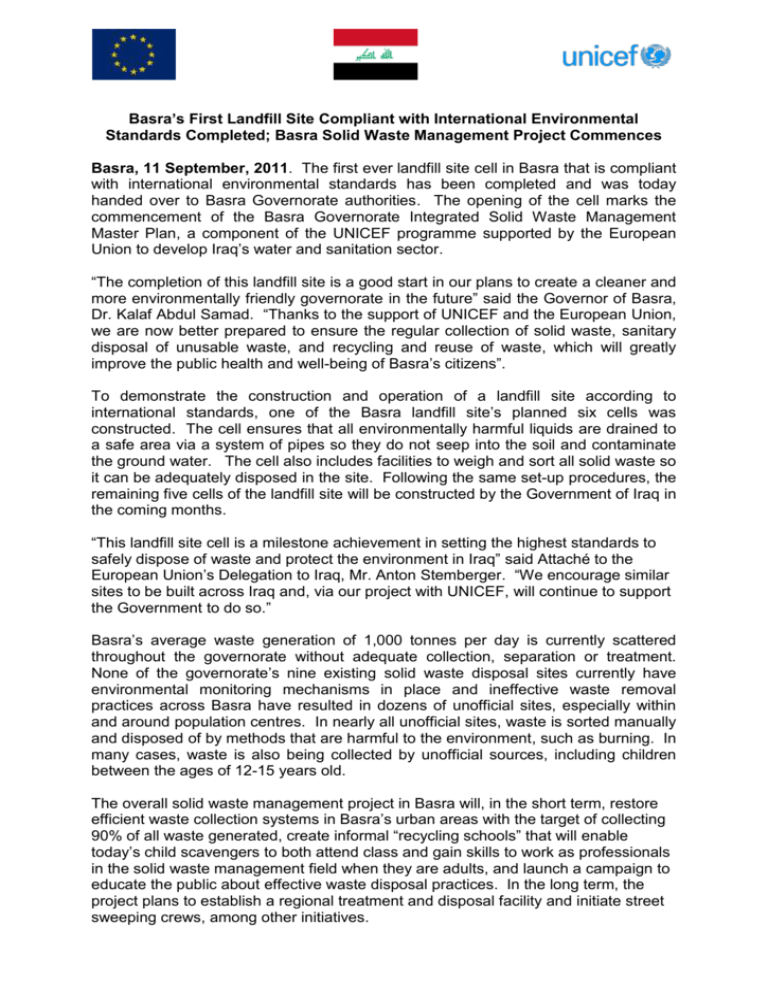
Basra’s First Landfill Site Compliant with International Environmental Standards Completed; Basra Solid Waste Management Project Commences Basra, 11 September, 2011. The first ever landfill site cell in Basra that is compliant with international environmental standards has been completed and was today handed over to Basra Governorate authorities. The opening of the cell marks the commencement of the Basra Governorate Integrated Solid Waste Management Master Plan, a component of the UNICEF programme supported by the European Union to develop Iraq’s water and sanitation sector. “The completion of this landfill site is a good start in our plans to create a cleaner and more environmentally friendly governorate in the future” said the Governor of Basra, Dr. Kalaf Abdul Samad. “Thanks to the support of UNICEF and the European Union, we are now better prepared to ensure the regular collection of solid waste, sanitary disposal of unusable waste, and recycling and reuse of waste, which will greatly improve the public health and well-being of Basra’s citizens”. To demonstrate the construction and operation of a landfill site according to international standards, one of the Basra landfill site’s planned six cells was constructed. The cell ensures that all environmentally harmful liquids are drained to a safe area via a system of pipes so they do not seep into the soil and contaminate the ground water. The cell also includes facilities to weigh and sort all solid waste so it can be adequately disposed in the site. Following the same set-up procedures, the remaining five cells of the landfill site will be constructed by the Government of Iraq in the coming months. “This landfill site cell is a milestone achievement in setting the highest standards to safely dispose of waste and protect the environment in Iraq” said Attaché to the European Union’s Delegation to Iraq, Mr. Anton Stemberger. “We encourage similar sites to be built across Iraq and, via our project with UNICEF, will continue to support the Government to do so.” Basra’s average waste generation of 1,000 tonnes per day is currently scattered throughout the governorate without adequate collection, separation or treatment. None of the governorate’s nine existing solid waste disposal sites currently have environmental monitoring mechanisms in place and ineffective waste removal practices across Basra have resulted in dozens of unofficial sites, especially within and around population centres. In nearly all unofficial sites, waste is sorted manually and disposed of by methods that are harmful to the environment, such as burning. In many cases, waste is also being collected by unofficial sources, including children between the ages of 12-15 years old. The overall solid waste management project in Basra will, in the short term, restore efficient waste collection systems in Basra’s urban areas with the target of collecting 90% of all waste generated, create informal “recycling schools” that will enable today’s child scavengers to both attend class and gain skills to work as professionals in the solid waste management field when they are adults, and launch a campaign to educate the public about effective waste disposal practices. In the long term, the project plans to establish a regional treatment and disposal facility and initiate street sweeping crews, among other initiatives. “The implementation of this master plan will make Basra cleaner for its children, contributing to the protection of their fundamental rights” said UNICEF Iraq’s Chief of Water and Sanitation and interim Representative, Mr. Hrachya Sargsyan. “We will continue to work with the Government, communities, families, and children to ensure the plan is effectively implemented.” In addition to the Basra master plan, UNICEF has developed the Duhok solid waste master plan and is currently developing master plans in Anbar, Thiqar, Sulimaniyah and Erbil governorates, which will all be completed by the end of 2011. UNICEF plans to use these solid waste master plans as models to work with Iraq’s 12 other governorates in developing their respective solid waste master plans in the coming years. The development and implementation of solid waste master plans in all governorates will be instrumental to attaining Iraq’s Millennium Development Goal 7 targets of ensuring environmental sustainability by 2015. About UNICEF Iraq UNICEF has been on the ground in Iraq since 1983 working to ensure Iraqi children survive and realize their full potential. UNICEF is supporting the Government of Iraq to develop child friendly policies, build the capacity of institutions that deliver essential services to children, and convene all duty bearers to realize the full rights of Iraqi children. Via a network of staff and partners, UNICEF’s programmes continue to improve basic health services, safeguard a quality education, rebuild water and sanitation systems, protect children from abuse, violence, and exploitation, and meet the needs of the most vulnerable in crisis situations. About UNICEF UNICEF is on the ground in over 150 countries and territories to help children survive and thrive, from early childhood through adolescence. The world’s largest provider of vaccines for developing countries, UNICEF supports child health and nutrition, good water and sanitation, quality basic education for all boys and girls, and the protection of children from violence, exploitation, and AIDS. UNICEF is funded entirely by the voluntary contributions of individuals, businesses, foundations and governments. For more information about UNICEF and its work visit: http://www.unicef.org. About EU in Iraq Helping Iraqi national efforts in achieving the Millennium Development Goals (MDGs) which have a strong two-way link to the peace consolidation process is fundamental for the EU. The EU’s objective for cooperation with Iraq has been to help Iraq mobilise its own resources for recovery and development, with the support of the international community. EU support to Iraq from 2003 to the end of 2010 amounts to over 1 billion Euro targeting mainly the following sectors: basic services such as education, health, water and sanitation, infrastructure; political and electoral process; support to refugees and IDPs; rule of law; human rights; and capacity building of Iraqi institutions. For more information about EU in Iraq visit: http://eeas.europa.eu/delegations/iraq For further information please contact: Jaya Murthy, UNICEF Iraq, +962796926190, jmurthy@unicef.org Salam Abdulmunem, UNICEF Iraq, +9647809126782, sabulmunem@unicef.org Anton Stemberger, EU Iraq, Anton.Stemberger@eeas.europa.eu
